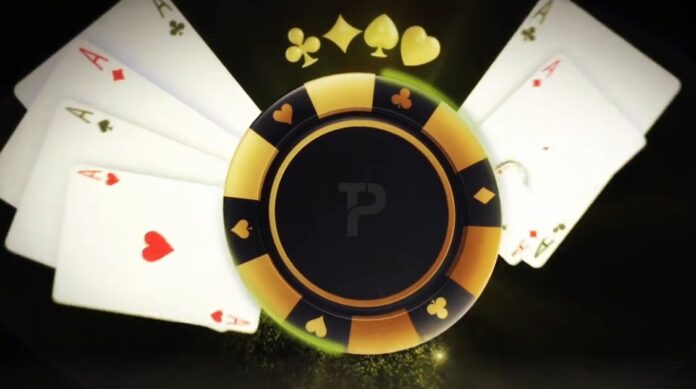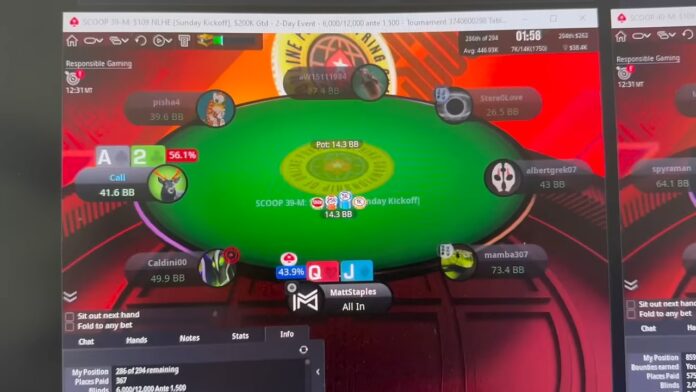The echoing shuffling of cards and the soft hum of conversation used to be the dominant sounds in poker rooms worldwide. Fast-forward to today, and the scene has drastically changed. The world of poker, once relegated to dimly lit rooms in casinos and the back tables of bars, has found its stride in the vast realm of the internet. From the traditional, tactile world of chips and cards, poker transitioned, much like many other industries, to the boundless expanse of the virtual universe.
Historical Context
In the early 90s, the digital age was in its infancy, and so was online poker. Born on rudimentary, text-based platforms, enthusiasts found a way to bring their love for the game into the virtual realm. This era, devoid of high-resolution avatars and dynamic graphics, was poker’s digital Stone Age. Yet, it held a unique charm. Over subsequent years, the trajectory of online poker mirrored the exponential growth of technology.
These once-basic platforms underwent a metamorphosis. As internet bandwidths expanded and software became more sophisticated, the platforms transformed into rich, multi-dimensional gaming environments. No longer mere lines of text, they emerged as thrilling, real-time hubs of poker action, testament to mankind’s continuous pursuit of innovation.
Accessibility and Convenience
If the internet had a core philosophy, it would be to bridge divides and foster connections. Online poker, in its essence, became the manifestation of this philosophy for card game aficionados. Erasing the limitations set by geographical boundaries, it gave players, whether in bustling cities or quiet towns, an equal seat at the table. And as the digital age ushered in the era of smartphones, poker took another evolutionary leap.
The introduction of mobile apps meant that poker was no longer restricted to desktops or designated gaming areas. It could be accessed from anywhere—during a mundane train ride, a quick lunch break, or the tranquil moments just before sleep on one’s favorite couch. The world became smaller, and poker more widespread.
Variety of Game Options
Traditional brick-and-mortar casinos, with their grandeur and opulence, often house a select few poker variants. These age-old favorites have been the staple of many a seasoned player’s repertoire. Yet, the digital transformation of poker opened the floodgates to an ocean of possibilities. Online platforms began to offer not just the universally beloved Texas Hold’em but ventured into the complexities of Omaha, the eccentricities of Razz, and the timeless appeal of Seven Card Stud. Add poker tournaments into the mix and you start understanding its popularity immediately.
With each variant came different strategies, unique challenges, and distinct thrills. This vast array ensures players of all kinds, irrespective of their experience or style, have a realm to delve into, an opportunity to explore, and a game to master. The digital realm became a treasure trove for every poker enthusiast.
Demographic Shift
Historically, traditional poker rooms presented a somewhat homogenized demographic. However, online platforms have radically disrupted this paradigm. The convenience and allure of digital poker, with its 24/7 accessibility, have notably ensnared the attention of the millennial generation. Furthermore, the anonymity and inclusivity of the virtual space democratized participation across gender lines and blurred cultural boundaries, thus crafting a rich tapestry of players with varied backgrounds, enriching the game’s dynamics.
Skill Development and Learning Resources
While many turn to online poker for the sheer thrill of the game, these platforms double up as learning crucibles. They abound with meticulously curated tutorials, detailed strategy guides, and even live training sessions helmed by experts. The immediacy of online resources means players can learn at their pace, practice in real-time, and refine strategies on-the-go. This treasure trove of knowledge, combined with the advantage of global exposure to diverse play styles, sharpens skill sets, transforming passionate novices into adept players.
Global Poker Tournaments
The online landscape revolutionized poker competitions, ushering in an era of global tournaments. Prestigious events, like the ‘SCOOP’ and ‘WCOOP’ on PokerStars or the ‘GGSeries’ on GG Poker, aren’t just virtual gatherings; they’re mega-events boasting staggering prize pools that leave participants awestruck. While the ambiance of these digital competitions may diverge from the palpable tension of live tournaments, they match— if not exceed—in intensity, allure, and the promise of substantial rewards.
Technological Innovations
Online poker platforms haven’t merely digitized a traditional game; they’ve enhanced it through cutting-edge technologies. The inclusion of VR poker experiences offers players an immersive escapade that blurs the line between virtual and real. Meanwhile, the adoption of AI and advanced machine learning ensures gameplay remains transparent, fair, and unpredictable. These technological marvels redefine user engagement, elevating the game’s intricacies and pushing poker into a futuristic realm.
Social Interaction and Networking
The digital age, while connecting people, often paradoxically isolates them. Yet, online poker defies this norm. Rooms are buzzing hubs of interaction, thanks to multiplayer modes, real-time chat functionalities, and in some advanced platforms, video interactions. Such features not only emulate the camaraderie of a physical poker table but also spawn tight-knit digital communities. These circles transcend mere gaming—they’re spaces where experiences, victories, defeats, strategies, and occasionally, light-hearted banter intermingle.
Legal and Regulatory Challenges
The meteoric rise of online poker, while commendable, has waded into murky legal waters. Jurisdictions worldwide wrestle with the intricate task of framing regulations for this digital titan. While progressive nations like the UK have crafted comprehensive regulatory frameworks, others teeter on the precipice of legalization. This oscillation between legal acceptance and resistance underpins a dynamic debate, fueled by economic interests, ethical concerns, and public sentiment.
Responsible Gambling and Player Protection
Digital platforms have a moral and ethical duty beyond entertainment: ensuring player well-being. Recognizing the pitfalls of the digital age—where access is unrestrained—online poker platforms have embedded robust responsible gambling mechanisms. Whether it’s tools that allow players to set playtime or betting limits, options for self-imposed exclusion, or collaborations with global organizations championing safe gaming, the industry’s endeavors underscore its unwavering commitment to fostering a balanced gaming environment.
Conclusion
Charting the meteoric rise of online poker is akin to navigating the transformative impact of technology on human behavior. As the virtual felt replaces the physical table and as clicks replace shuffles, one thing remains constant: poker’s undying charm. In an ever-evolving landscape, we can only wait with bated breath to see where the next turn of the card takes this beloved game.













